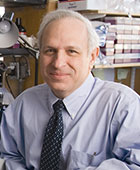Subtle Thyroid Dysfunction Can Affect Antidepressant Response
Abstract
Assessing thyroid hormone production in a patient who is not responding to antidepressants can open up new options for treatment.

Bruce Cohen, M.D., Ph.D., is the Robertson-Steele Professor of Psychiatry at Harvard Medical School and director of the Program for Neuropsychiatric Research at McLean Hospital.
Inadequate thyroid hormone production (hypothyroidism) and depression are both common disorders that co-occur in many patients, particularly in women and older adults.
Hypothyroidism can contribute to depressive symptoms, and in patients with overt hypothyroidism, thyroid hormone (TH) replacement therapy is helpful. However, for most cases of depression, TH supplementation does not appear to be effective alone or as an augmenting agent (1).
As a young psychiatrist 40 years ago, I saw several women with known thyroid disease who were on TH replacement therapy and had thyroid-stimulating hormone (TSH) levels in the “high-normal” range, but whose depression was unresponsive to standard treatment. (Assessing TSH levels, which are inverse to TH levels, is the best proven and most common way to track thyroid function.) Their depressions lifted once their TH supplementation was increased and their TSH values dropped to slightly below average.
Over the decades since, I have treated many more men and women with no prior thyroid disease, normal TSH values, and similar presentations of treatment-resistant depression who respond to TH supplements at doses great enough to drive TSH below average. Were these people subtly hypothyroid, even though their tests were in the range considered normal?
A series of recent studies has suggested that the “normal” range for serum TSH levels—0.4 uIU/mL to 4.5 uIU/mL—needs revision downward (2). For many laboratory tests, people are clustered near the center of the normal range. But this is not the case for TSH. While the center of the TSH “normal” range should be about 2.5 uIU/mL, the actual peak for TSH is about 1.5 uIU/mL, with most people well below the center. In fact, there is mounting evidence that TSH levels above 2.0 uIU/mL suggest some degree of thyroid inadequacy and an elevated risk of developing outright thyroid disease (3).
These findings may explain why we see patients who do not respond adequately to antidepressants if TSH is “high-normal” (2.5 uIU/mL or higher) but who do well if TH supplementation is maintained so that TSH is below 2.0 uIU/mL.
As my colleagues and I recently detailed in an article in the American Journal of Psychiatry, we believe that TSH should be obtained for any patient with a poor response to antidepressant treatment (4). A repeated TSH level above about 2.5 uIU/mL suggests some degree of thyroid inadequacy.
If you discover that your patient has thyroid inadequacy or disease, be sure to communicate this information to the patient’s primary care physician and/or consult with an endocrinologist. If the patient is already taking thyroid hormone supplements, consider increasing the dosage of the supplement. If the patient is not yet taking thyroid hormone, you might consider prescribing it.
Patients can be supplemented with either of the thyroid’s natural hormones: thyroxine (T4) or triiodothyronine (T3). In the body, T4 is converted to active T3. T4, with its longer duration of action, is preferred by most endocrinologists. However, there is no evidence that one is more effective than the other.
Symptoms of depression, side effects of supplementation, and TSH levels should be monitored. It can take several weeks before the effects of thyroid supplementation become evident. I most commonly give enough TH supplementation to drive TSH below 2 uIU/mL, even below 1 uIU/mL, if symptoms persist. Even a TSH lower than half that is associated with very few and rare side effects.
In conclusion, most depression does not seem to be related to thyroid disease. Nonetheless, we know that depression and thyroid inadequacy are each common, are often seen together, and that our patients can benefit if we look for instances where thyroid inadequacy, even mild thyroid inadequacy, is limiting treatment response. A careful trial of supplementation is relatively safe and inexpensive, and it can be very effective. ■
1. Jonklaas J, Bianco AC, Bauer AJ, et al. Guidelines for the Treatment of Hypothyroidism: Prepared by the American Thyroid Association Task Force on Thyroid Hormone Replacement. Thyroid. 2014; 24:1670-1751.
2. Pearce SH, Brabant G, Duntas LH, et al. 2013 ETA Guideline: Management of Subclinical Hypothyroidism. Eur Thyroid J. 2013; 2:215-228.
3. Hamilton TE, Davis S, Onstad L, et al. Thyrotropin Levels in a Population With No Clinical, Autoantibody, or Ultrasonographic Evidence of Thyroid Disease: Implications for the Diagnosis of Subclinical Hypothyroidism. J Clin Endocrinol Metab. 2008; 93:1224-1230.
4. Cohen BM, Sommer B, Vuckovic A. Antidepressant-Resistant Depression in Patients With Comorbid Subclinical Hypothyroidism or High-Normal TSH Levels. Am J Psychiatry. 2018; 175:598-604.



